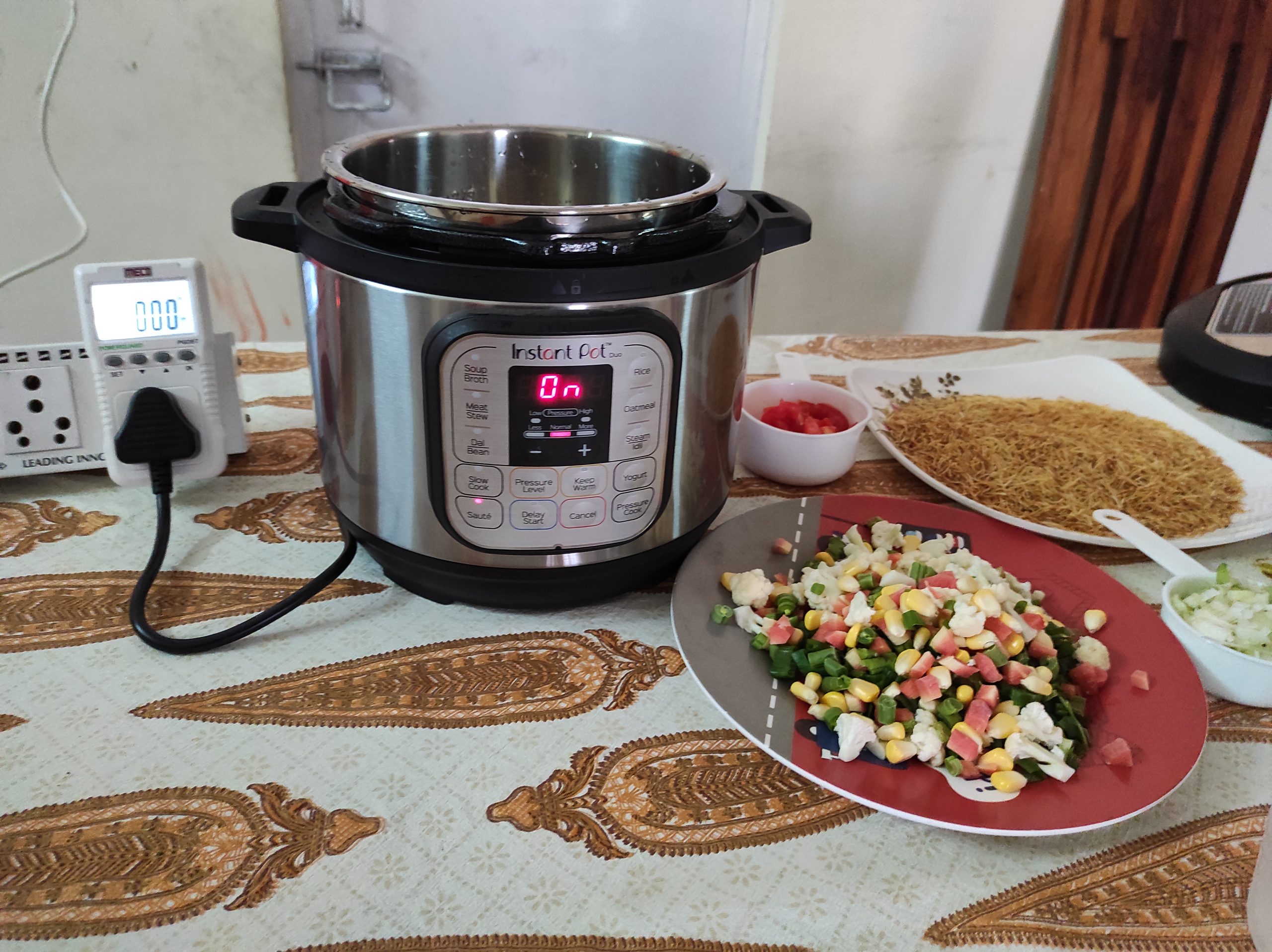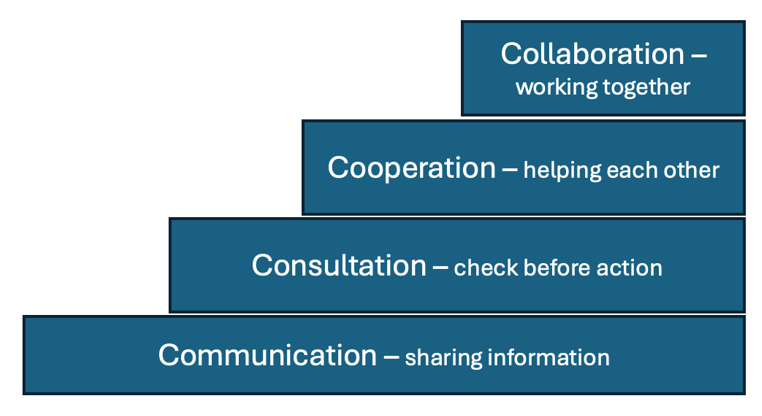
- Date
- 7th August 2024
- Categories
- eCooking, eCooking suppliers
By Dr Nick Rousseau (Loughborough University).
I am just back from another 10 days in India with Finovista and there is so much going on!!
We had discussions with a range of key agencies with real potential to make a difference on the ground, including an important round of meetings with the Principle Scientific Advisor’s team, the Director from the Ministry of New and Renewable Energy and the British High Commission in Delhi and Chandigarh. In this blog I reflect on the trip and offer observations on the importance of multiple agencies coming together to collaborate – and the processes involved.
As we get more involved with the different organisations, the better we can see how the challenges each one of these faces could be met by the strengths of one of the others. They each have “pain points” where the organisation has a blind spot or can see a need but does not necessarily have a substantial track record of delivery. To me they have three options – to cut that aspect or aspiration out of their business/delivery model, to attempt to grow their own in-house capability or to find a partner that can complement their own strengths.
For instance, I have been exploring a “supply chain platform” framework that sets out the elements that need to be in place to effectively supply electric cooking appliances into a market and to ensure they get used and supported post take-up. Currently, it asks about:
| Range | What kinds of products are available through this? |
| Product source | Nature of the supplier |
| Logistics | How are logistics managed? |
| Stock | Where and how is stock held? |
| Marketing | What marketing is done and who is responsible? |
| Product info | What info is available for potential customers about the products and how is this accessed? |
| Demonstration | Are there demonstrations of the product(s) in use? |
| Home electrics | Is there any support for electrician to ensure home electrics are suitable? |
| Finance | Is there support with the costs of products? |
| Purchase | How does the purchasing take place? Who is responsible? |
| Hand holding for new users | Is there any support for the new user to help them learn how to use the product? Who is responsible? |
| Support ongoing & increasing use | Is there any support or encouragement for continued use of the product and help with expanding the range of dishes cooked, etc. |
| Technical support | Is there technical after sales support for the user? |
| Spare parts | How are spare parts accessed? |
| Repairs | Is there support for getting repairs carried out? |
| Warranty | Is there any warranty? Who provides this and how does it work? |
When talking to the diverse companies and agencies of India, I have observed various business models that have different ways of delivering some or all of these components. In the context of building a complete supply chain, then those that are not included could be seen as “pain point” because if they are missing it will restrict their growth. For example, if they have no means of providing consumer finance or after sales support… So this could be complemented by another company’s strength. This suggest there is scope for collaboration that harnesses different strengths and achieve greater take-up of eCooking. But how can we encourage them to collaboratively work together?
Ultimately, MECS is all about building a jigsaw – looking strategically at a wide variety of organisations to identify how they can fit together to drive change. Some of these can be directly involved in addressing limitations of supply chain players, others have a different role in bringing eCooking to the masses. My latest visit and series of meetings illustrate this…
How will we develop trained people who understand eCooking, across the ecosystem? We are working with the Skills Council for Green Jobs who are working on training for the many different roles within this supply chain ecosystem – we hope they will be able to develop a Skills Gap Analysis that could help to unpack the economic opportunities represented the shift to eCooking and enable an army of trained individuals to play their role in opening up access.
How can we use remote data collection and controlling of devices to unlock innovative business models? We spoke to the GSMA about how to support those seeking to harness the power of the Cloud in delivering solutions
How can we build carbon finance into our business model? We visited the Carbon Markets Association of India (CMAI) to learn about their work to unlock the potential for carbon finance and equip organisations to understand how it can work.
Who can provide the initial finance to build the market? We are in discussions with the Shell Foundation who can invest in projects where there are strong expectations of growth in livelihood, especially for women micro-entrepreneurs.
How can retailers and MFIs help users choose appliances that will save them the most money? We visited Bureau of Energy Efficiency who have developed the Star Labelling scheme that can demonstrate to users which induction stoves are the most energy efficient, to help reassure and encourage this. They are hoping manufacturers will adopt this without them having to make it compulsory.
How can we partner with the electricity suppliers so that tariffs support the transition and the grid will be able to cope with the additional load? Engaging with DISCOMs is going to be critical as our experiences in Africa show they can be incredibly important allies but also, if the electricity tariffs are increased substantially this can reduce the incentive for households to switch. We had a good meeting with India Smart Grid Forum (ISGF) and Prof Debajit Palit about how we can develop a strand of capacity building and sharing of learning.
Finally, and potentially the most exciting, were discussions we are having with Michelle Hallack, World Bank, Manoj Mahata, GIZ and Soumya Garniak, GGGI about how we could collaborate to develop state level programmes that could bring these elements together into a joined up intervention that enables eCooking to be scaled up massively. This can be linked to State Energy Action Plans where eCooking is recognised as a key component, or to efforts to improve air quality which the World Bank is funding.
And so finally, I reflect on a very simple framework I learnt many years ago, but that sets out a key point about collaboration. This was first set out by Martin, Nolte and Vitolo in 2014 as the 4 Cs of Disaster Partnering1 – a “continuum of increased interorganisational embeddedness in partnering activities”. Effective collaboration only takes place after a period where two or more organisations have progressed through earlier stages of mutual awareness, exchanging information, and coordination/cooperation. When the entities are very distinct with their own respective agendas and goals, this progression is critical to the development of the trust that is needed to enable genuine collaboration. Essentially, they all serve as opportunities to test and prove each parties’ willingness to act in ways that serve the mutual benefit, rather than acting solely in their own best interests.

MECS has long used the metaphor of the Jigsaw to describe how we approach our work. Whatever metaphor you use, the message is the same – change can only happen when all the pieces are brought together and can progress from cognisance to collaboration.
As we continue our meetings and prepare for the MECS Forum in September, we look to connect these different organisations and help them collaboratively overcome their pain points, aspiring to a sustainable eCooking future for India.
…………………………………….
1 DOI: 10.5465/AMBPP.2014.13532abstract
Featured image credit: Finovista.